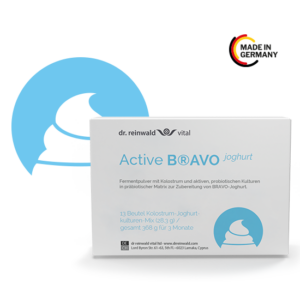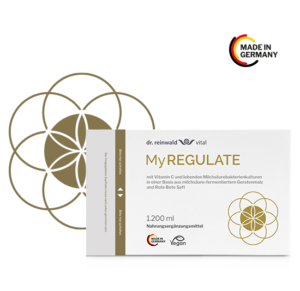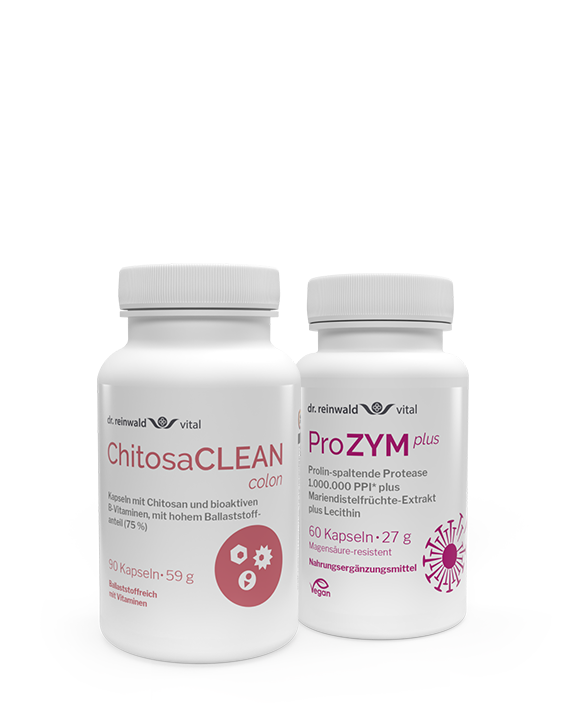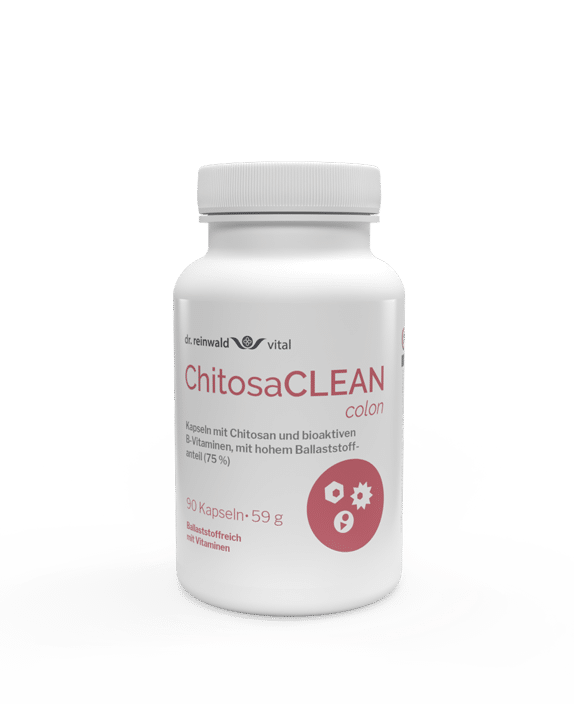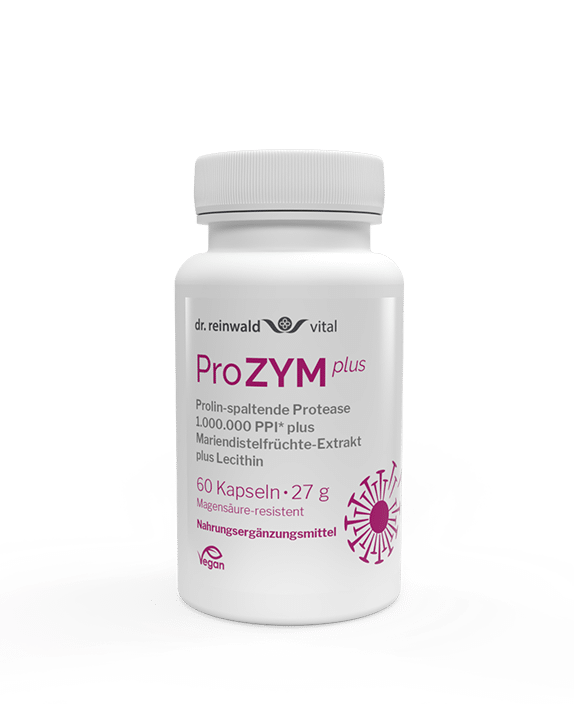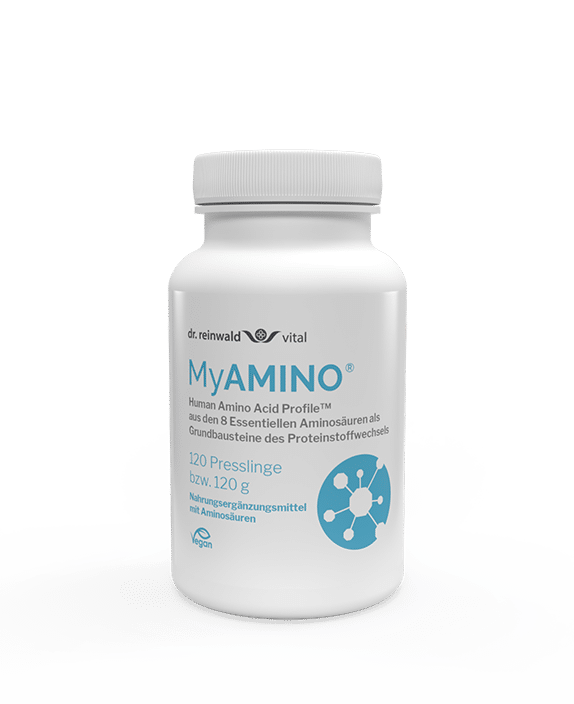Gluten intolerance?
The 6 most common symptoms
Abdominal cramps, headaches, fatigue, depression… Gluten intolerance or celiac disease can have many faces. Since the symptoms are usually very unspecific and individual, it is also called the “chameleon among diseases”. Those affected often go through years of suffering until they finally receive a diagnosis. Does this sound familiar? We explain what happens in the body during gluten intolerance and what the most common symptoms are.
Gluten intolerance – what is it anyway?
Gluten, a protein mixture also known as gluten, is found in all common cereals such as wheat, spelt, barley, rye, oats and green spelt, but also in ancient cereals such as einkorn, kamut and emmer. Because of its special food-technological properties, gluten is also often used as an emulsifier, as a carrier of flavorings or for gelling and stabilizing, for example in sausages, sweets, sauces and spice mixtures.
The terms gluten intolerance and gluten intolerance cover all complaints that are triggered by the consumption of certain gluten. However, there are differences: In people with celiac disease (also known as sprue), even the smallest amounts of gluten trigger an autoimmune reaction. This means that the body reacts to the grain protein with a defensive reaction and also attacks the body’s own structures. The result is chronic inflammation of the small intestine, which in the long term destroys the intestinal mucosa and villi and thus impairs nutrient absorption in the intestine. The body is no longer adequately supplied with essential vitamins and minerals, which can lead to malnutrition and, in children, to growth and development disorders.
Gluten sensitivity or non-celiac gluten sensitivity refers to a hypersensitivity to gluten or other grain components. It causes similar symptoms, but does not elicit an autoimmune response or detectable changes in the intestinal mucosa.

»The path to health leads through the kitchen,
not through the pharmacy.
Sebastian Kneipp (German Catholic clergyman, naturopath and hydrotherapist)
Complaints in connection with gluten intolerance
The symptoms of gluten intolerance vary from person to person and are sometimes very unspecific. In addition, the symptoms often do not appear immediately after the consumption of gluten, but only days later. They can last from a few hours to several weeks and become chronic. Many people suffer from a variety of symptoms but are unaware of their intolerance.
We have compiled the six most common signs of gluten intolerance for you. If you experience one or more of the following symptoms more frequently or even permanently, you should have yourself examined by your alternative practitioner for gluten intolerance and celiac disease.

1) Digestive problems
Digestive problems such as gas that does not go away, bloating, abdominal cramps, diarrhea and constipation are the most common symptoms of gluten intolerance. People with celiac disease may experience fatty stools (steatorrhea) due to impaired fat digestion. The stool is then slimy, greasy, has a pale color and an unpleasant odor.
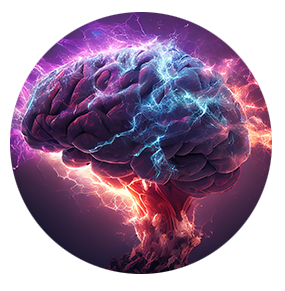
2) Neurological disorders
Our intestines have an autonomic nervous system that is directly connected to the central nervous system and that has the same nerve cells as our brain. Therefore, the intestine is also called the abdominal brain or second brain.
Accordingly, it is not surprising that the consumption of gluten in the case of gluten intolerance can also cause neurological disorders. (1) These can manifest themselves in many ways:
- Headaches or migraines
- Low blood pressure and dizziness
- Balance disorders
- Regulatory disorders of the autonomic nervous system
- Tingling and numbness in the arms and legs (neuropathy)
- Pain in muscles and joints (fibromyalgia)
- Depression and anxiety disorders

3) Autoimmune diseases
Celiac disease and gluten sensitivity can cause other autoimmune diseases or exacerbate them if already present. These include rheumatoid arthritis or the chronic thyroid disease Hashimoto’s thyroiditis.

5) Skin lesions
Dermatitis herpetiformis Duhring (DHD) is caused by the consumption of gluten, which is why it is also known as “celiac disease of the skin.” The chronic, blistering skin disease is accompanied by severe itching. Other skin conditions may also improve with a gluten-free diet.

4) Tiredness & fatigue
Do you suddenly feel dog-tired after eating, especially gluten-containing foods, and do you always feel listless and exhausted? If your everyday life is severely restricted by constant fatigue, this is called chronic fatigue syndrome (CFS). This can also be an indication of gluten intolerance.
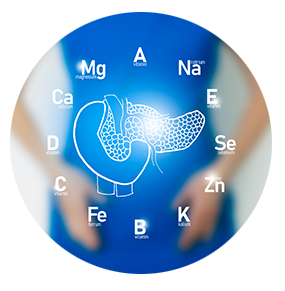
6) Unexplained nutrient deficiency
If there is a nutrient deficiency despite a balanced diet, especially iron, vitamin A, B12 and B6, this may be an indication of gluten intolerance. Iron deficiency, in particular, is a common symptom of celiac disease in both adults and children.

“Common sense starts in the kitchen.”
Friedrich Wilhelm Nietzsche (German philosopher and classical philologist)
Healthy and gluten-free: the ketogenic diet
Since gluten intolerance is not considered curable, abstaining from gluten-containing foods for life is usually the only therapy, especially for celiac disease. The ketogenic diet, virtually gluten-free by eliminating carbohydrates, is a wonderful alternative here.
The high-protein diet, plenty of low-carbohydrate vegetables, sufficient “good” fats and plenty of water allow your intestines and your organism to regenerate optimally.
You can find out more in the book “Healthy, slim and fit” by Dr. Heinz Reinwald.
Vital products for your intestinal health from dr.reinwald vital
You don’t want to do without gluten-containing foods permanently and treat yourself to a good bread or a delicious pasta dish every now and then?
Then we recommend ProZYM plus with the natural, protein-degrading (proteolytic) enzyme prolyl oligopeptidase. This enzyme is specialized in the cleavage of proteins, especially of particularly resistant proline compounds in intestine, tissue and blood. Among other things, proline is contained as “gluten” in cereal gluten. The additionally contained milk thistle is said to stimulate the power of the liver and thus promote the body’s own degradation and elimination processes. ProZYM plus is thus our vital product of choice for the prevention of celiac disease and other gluten-sensitive
Want to build and support your microbiome?
Our ActiveBRAVO for the preparation of probiotic BRAVO yogurt with colostrum and more than 100 active probiotic cultures supports the biodiversity and thus the health maintenance of your physiological intestinal flora.
MyREGULATE, the probiotic ferment concentrate with vitamin C feeds your microbiome with live lactic acid bacteria and thus gently supports your digestion.
